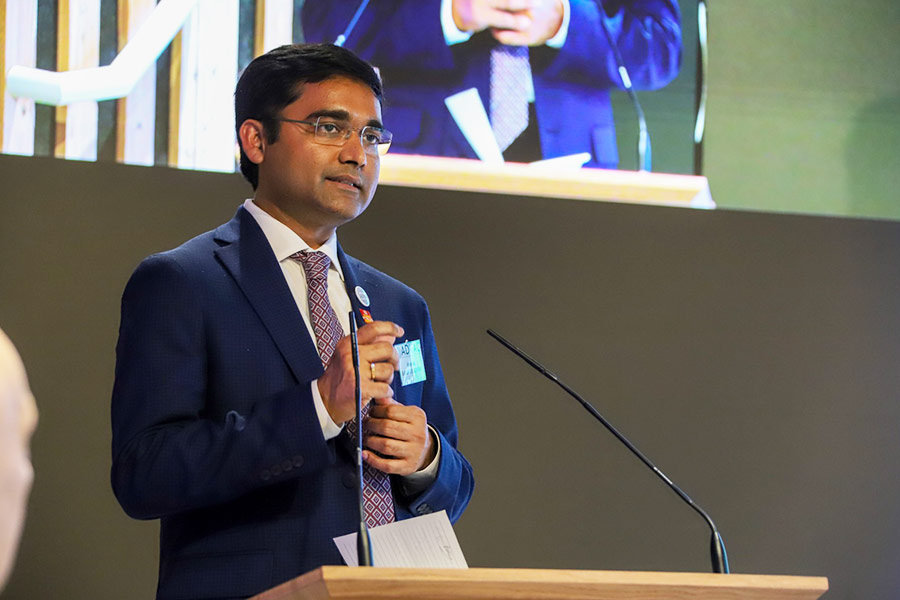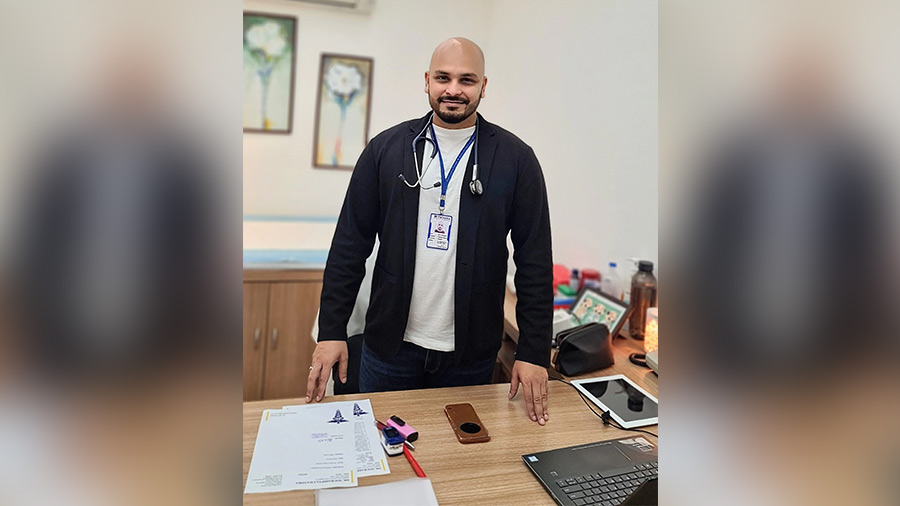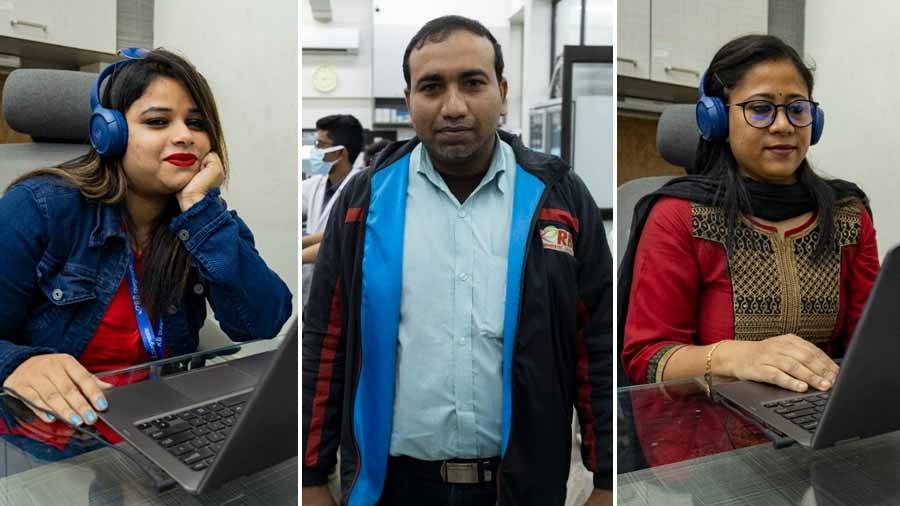What is India’s greatest achievement of the 21st century so far? Lifting hundreds of millions of people out of poverty? Championing the least-expensive mission to Mars? Building the most prolific film industry in the world? Winning three men’s cricket World Cups? The debate can rage on for the rest of the century, as the world’s most populous nation keeps scaling heights. But one achievement that frequently flies under the radar is India’s elimination of polio, made official in March 2014.
“I can’t emphasise how big of a global milestone it was when India was declared polio-free. In 2011, we had already stopped the wild polio transmission. The last child infected with the wild poliovirus was from Howrah. In 13 years, not a single case of wild poliovirus has been reported. Many experts doubted India’s ability to overcome polio, but the country proved them wrong,” says Ananda Sankar Bandyopadhyay, 45, one of the planet’s most important crusaders against polio. Currently serving as the deputy director of the polio programme at The Gates Foundation, Bandyopadhyay, born and brought up in Kolkata, was recently honoured with the “Award of Merit” by Harvard Chan School (the public health school of Harvard University) for his contributions to global health.
‘The solution to polio is more vaccination, not less’
“Polio has the longest-standing designation as a Public Health Emergency of International Concern (as determined by the WHO) of any disease. There are three types of wild polio and, so far, we’ve been able to eradicate the second and the third types. The first one lingers on, in areas of Pakistan and Afghanistan… The virus is on its last legs, gasping for life,” describes Bandyopadhyay, whose poised countenance lends a sense of automatic authority to everything he says, unperturbed by the evening chatter at a busy south Kolkata cafe.
But just because wild polio has largely been tamed doesn’t mean that humanity is safe from this crippling illness that can paralyse both limbs. “As we speak, 15 countries are dealing with the variant poliovirus (a vaccine-derived strain as opposed to the naturally occurring form of the virus). These strains are related to the Oral Polio Vaccines (OPVs), which are often used by countries (especially developing nations) in their fight against polio and are made from a weakened version of the virus,” explains Bandyopadhyay. However, a vaccine-derived strain of polio is not an argument against vaccination. “In fact, the problem is more to do with vaccine coverage rather than OPVs. In areas where there is low immunisation against polio, the virus can mutate, even though it can rarely regain its capacity to induce paralysis. The solution to this strain of polio is more vaccination, not less,” clarifies Bandyopadhyay.
In 2021, a next-generation OPV, called the novel Oral Polio Vaccine type 2 (nOPV2), began to be used widely for its greater genetic stability and affordability. Bandyopadhyay was instrumental in the journey of nOPV2, leading several development activities for the vaccine besides serving as the global co-chair for its rollout. “More than 1.2 billion doses of nOPV2 have been administered till date in 41 countries. The clinical development process of the vaccine has been a truly global effort, from South and Central America to Southeast Asia and Africa. The first clinical studies were done in Belgium and subsequent, larger studies were done in other parts of the world, including Panama, Bangladesh and Gambia,” narrates Bandyopadhyay, who regards the vaccine as a game-changer, and not just for its enhanced capability to combat polio: “The nOPV2 was the first-ever vaccine to receive the WHO Emergency Use Listing (EUL) authorisation (in 2020), which paved the way for other vaccines to use the same regulatory pathway during the Covid-19 pandemic and beyond.”
From CNMC to The Gates Foundation, via WHO and Harvard
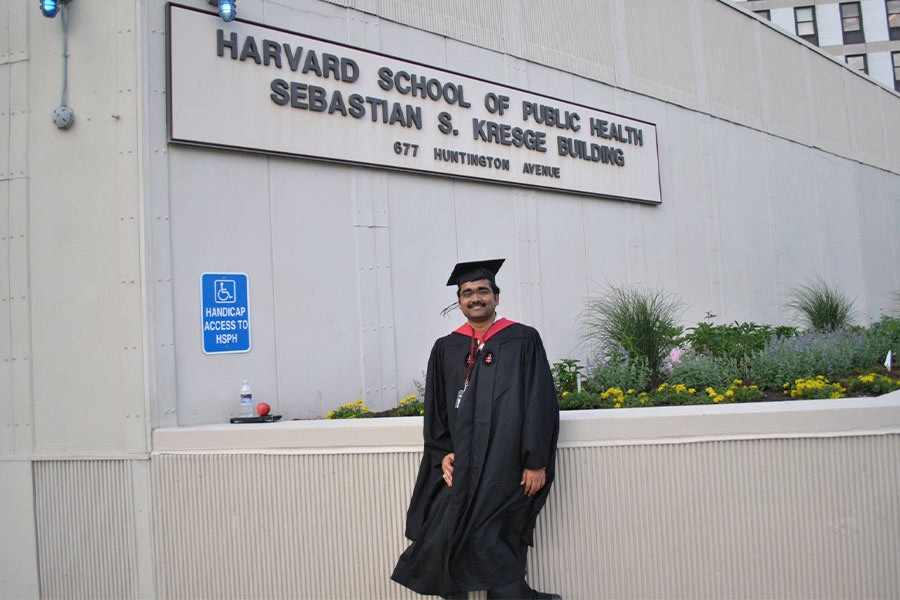
Bandyopadhyay completed his MPH from Harvard in 2010, shortly after his stint in India with the WHO
Few Indians understand polio as comprehensively as Bandyopadhyay, whose first encounters with polio eradication efforts in India took place during his days as a surveillance medical officer with the WHO. Travelling across West Bengal, Sikkim, Assam, Bihar and Uttar Pradesh, Bandyopadhyay witnessed up-close the misery polio can inflict, especially on children from the most socially and economically vulnerable groups. “I worked in the remotest areas, coordinating massive vaccination campaigns with doctors and healthcare professionals,” remembers Bandyopadhyay, who spent months-on-end in makeshift houses and dilapidated structures.
Crucial as his work and learning were, it was an “unconventional choice” for a medical graduate from the Calcutta National Medical College (CNMC). After completing his education and internship at CNMC — where he was a gold medallist and found “sincerity and empathy” to be his most enduring lessons — Bandyopadhyay wanted some experience as a field epidemiologist, which led him to the WHO. Following that, Bandyopadhyay took “another major decision because I felt I needed a formal training in epidemiology and global health”. His next stop was Harvard, where Bandyopadhyay finished his Master of Public Health (MPH) degree in 2010, relishing an environment where “there were no boundaries on what I could learn — from geospatial technology to mathematical modelling”.
Almost a decade-and-a-half since his student days at Harvard, Bandyopadhyay is now among its most distinguished alumni, and quite possibly the first Bengali to receive the Chan School’s highest award for its former pupils. “I think they’ve made a mistake, and might retract the award!” jokes Bandyopadhyay, whose time between Harvard and The Gates Foundation (which he joined in 2012) was spent managing public health responses as a medical epidemiologist at Rhode Island’s Department of Health in the US.
Making the case against vaccine scepticism
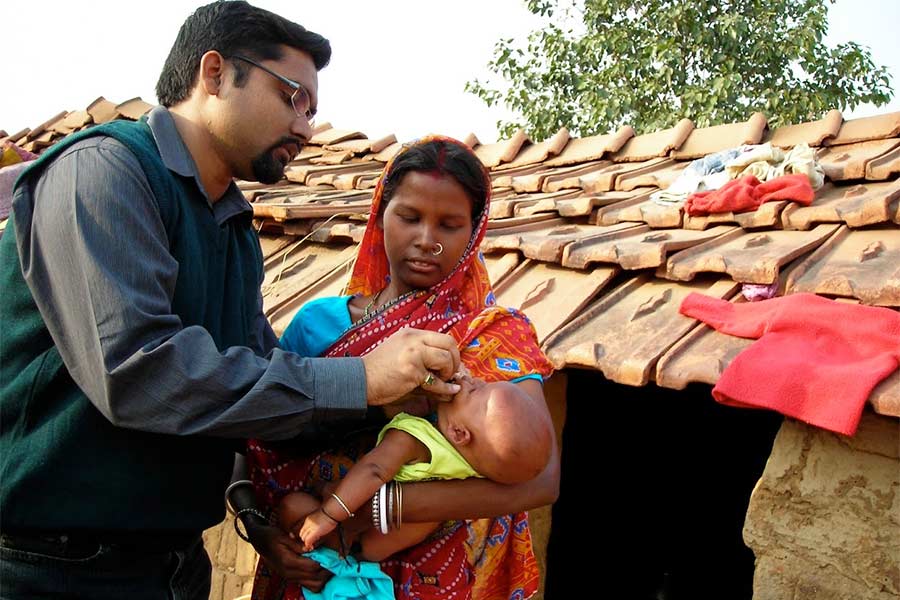
Bandyopadhyay explains the role of a benefit-risk assessment when it comes to rapid vaccine development
“My role at the Gates Foundation is primarily focussed on core research. It’s very different from the field work I was doing earlier in my career,” says the Seattle-based Bandyopadhyay, who is a lifelong admirer of A.R. Rahman, and has waxed eloquent on the music maestro for My Kolkata. As the conversation circles back to vaccination, Bandyopadhyay is asked to confront a question that many vaccine sceptics (mostly regarding the Covid-19 vaccine) pose — how to trust a vaccine that has been rolled out in super-quick time without a study of its long-term side effects?
“A vaccine is immediately stopped during development if its potential side-effects are believed to outweigh its benefits. Rapid vaccine development happens under even more scrutiny [than normal]. Parallel processes are initiated to ensure that the rigour and scale of development can keep up with the timeline,” outlines Bandyopadhyay. Sensing that he is yet to clinch the argument, he adds: “Let’s assume for a moment that we don’t know all the potential side-effects of a vaccine that has been rapidly developed. But we do know the direct, detrimental effects of the virus or bacteria, don’t we? That’s where a benefit-risk assessment begins.”
With decades of experience in epidemiology, Bandyopadhyay feels that successful immunisation is as much about people as it’s about science. “The family and the community are vital vehicles for vaccination. You need proactive people with patience and empathy. Let’s not forget that we’re fighting viruses that don’t discriminate on the basis of caste, class, sex or religion. To fight such viruses, humans can’t afford to be prejudiced; we need to be united,” says Bandyopadhyay. In the context of India, Bandyopadhyay is rightfully proud of how much improvement has happened to public health this century: “If we just look at polio eradication, it’s been a case of everybody coming together in India, from the central and state governments to local health officials. The female frontline health workers deserve a lot of the credit, they have made the difference.”
‘In public health, India needs to invest more in innovation’
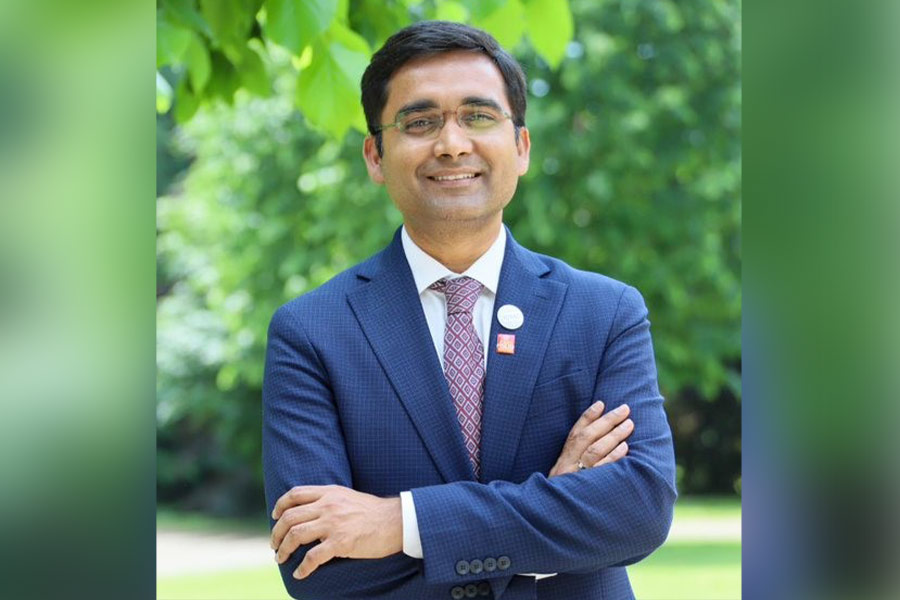
Bandyopadhyay feels that India has taken impressive strides in terms of immunisation programmes, sanitation and hygiene in recent times
Bandyopadhyay identifies India’s routine immunisation programmes and its advancements in sanitation and hygiene as the biggest success stories of its public health system in recent times. But what about the challenges and shortcomings? “There are lots of things that can be done and done better. But if I had to single out one, I’d pick innovation. As a country, we need to invest more in innovation, be it vaccines, life-saving drugs, surveillance tools or detection methodologies.”
As he prepares to leave, Bandyopadhyay is asked a final question, the only one that makes him think longer than three seconds, perhaps because his default humility kicks in. What advice would you like to give to young epidemiologists and health professionals? “My only advice would be to not listen to anyone’s advice. Everybody is unique and they should nurture their uniqueness. But, if you insist, then I’d say prioritise sincerity and empathy in life,” concludes Bandyopadhyay, picking the two values that anchor him to his medical roots at CNMC and, by extension, in his service to humanity.
